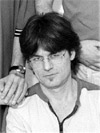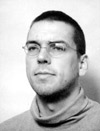xxx Ideas for an alternative economy Many individuals and groups are pillorying the current system of economic growth and offering alternatives. Often these ideas are in the context of macro-economics, from which level the dominant worldwide principles are attacked, and from which level the alternatives are offered. In this article we want to have a closer look at ideas put forward by two organisations: Stichting Aarde (the Earth Foundation) and Strohalm (Straw). Both organisations emphasize the development of alternatives to traditional economic processes, though it is mainly Strohalm which encourages putting theory into practice. Examples are: support for LETS-groups nationwide, the initiation of Pergola-Mergers in co-operation with the ASN bank, and the provision of tax-free funds. Aktie Strohalm The work of Strohalm revolves around the role of money in society and possible alternatives to the monetary system. Strohalm is looking for 'financial micro-initiatives', alternatives which enable people at the local level to work in a sustainable way2. The most recent initiative by Strohalm is the setting-up of Liquid Capital Circuits. In short, LCC is a trade network, bringing together consumers and companies. Trade is carried out by exchange of goods or services on the basis of 'exchange units'. The idea behind it is that all transactions happen in an insider-circle, outside the actual monetary system and without added interest. It is in fact a progression from, and combination of, LETS and the Bartersystemen (exchanges between enterprises). The idea of LCC evolved from
the problem which confronts small enterprises in particular: their limitation by the
monetary system. Having analyzed the monetary system, Strohalm differentiates between two
monetary cycles. The first deals with the production and consumption of goods; the second
is characterized by speculation, demands and debts. There is a leak between the two
cycles: the speculative cycle is able to tap into the productive cycle and pull money out
of it by various means, milking the high net yield of the circulation of money. Stichting Aarde Sustainability and sustainable economics are terms which are vulnerable to over-use. As Willem Hoogendijk says, 'In general the term 'sustainability' is approached from within a dominant paradigm. We imagine that smoking chimneys nowadays are emitting as little smoke as possible. Similarly we imagine that companies are going on producing or providing services, but being as environmentally-friendly as possible. Aarde tries to dig deeper. We think that the system of ongoing and maximum production is absurd. It only makes sense in the production of bread, milk, electricity and newspapers; also health service provision, but for a lot of other things it is pointless.' Clearly, environmental issues play a vital role in Aarde. 'The environment's limits are absolute. Our current actions amount to hardly anything; in fact, they disguise the real problems in this area' (op.cit.). Hoogendijk's political, social and economic convictions are strong. 'Dominant economic theories bring to mind 'disguise', too: the disguising of the power of money. Education is also in the service of the ruling economy, and injustice is thus perpetuated. Private profit equates with common poverty. One tries to distribute the cake in a fairer way, but economic growth sidetracks that fairer distribution. There might be more crumbs left for the poor but there is no real change. Therefore we think that the liberation of the environment and the liberation of labour is the very same process.' Aarde's main emphasis is not on sustainable economics, but on 'changing the context of employment'. Aarde's call is for a movement to literally 'overthrow' - not aiming to shame entrepreneurs but to liberate them from being captives of the system themselves. This could be achieved in a small-scale local economy. In framing plans for a sustainable urban or regional economy, Aarde advocates that money should stay in the metropolitan district, or the town, or the region. Purchasing power in the area would be sustained by local employment and also support it. Also, the ecological and social aspects of such a small-scale economy would be easier to control. The foundation has initiated a
lot of activities. Besides publishing information on sustainability, it organises lectures
and training courses and carries out research. It offers consultancy work and is involved
in different networks5. Aarde has set out to gain more influence, exchange knowledge and
experience, and initiate new activities by founding and participating in other
organisations, networks and alliances, This is why Aarde has become a member of Attac
Nederland and also belongs to Kritisch Landbouw Beraad (an organisation of farmers for a
peaceful life, a decent income and housing in a green countryside worth living in). Aarde
participates (with the Catholic University Brabant and X - Y) in Projekt Alternativen zum
Neoliberalismus (Projects Antedotal to Neoliberalism), and is active in networks such as
the David-Allianz (in which the power of a small number of NGOs is combined), the European
Network for Economic Self-help and Local Development, and Nederlands Netwerk voor sociale
Economie, which is to become the Dutch branch of the European network. Notes
|
|||||
 |
Nils Buis worked as a graphic designer in his company 'Om tekst en vorm' and in the Utrecht housing project 'de bonte kaketoe'. He is a member of Solidair.. |  |
Jaap van Leeuwen is a consultant on sustainable technology with ADT (Advies Duurzame Technologie). He is a member of Solidair. | ||
| LINKS
TO: www.solidair.nl www.aarde.org www.strohalm.nl |
|||||
| | TOP | PRINT THIS PAGE | | |||||